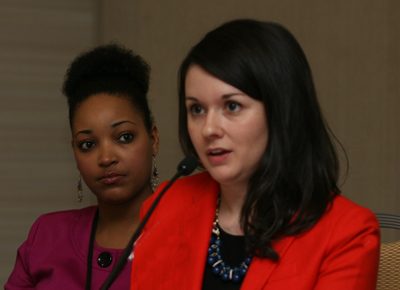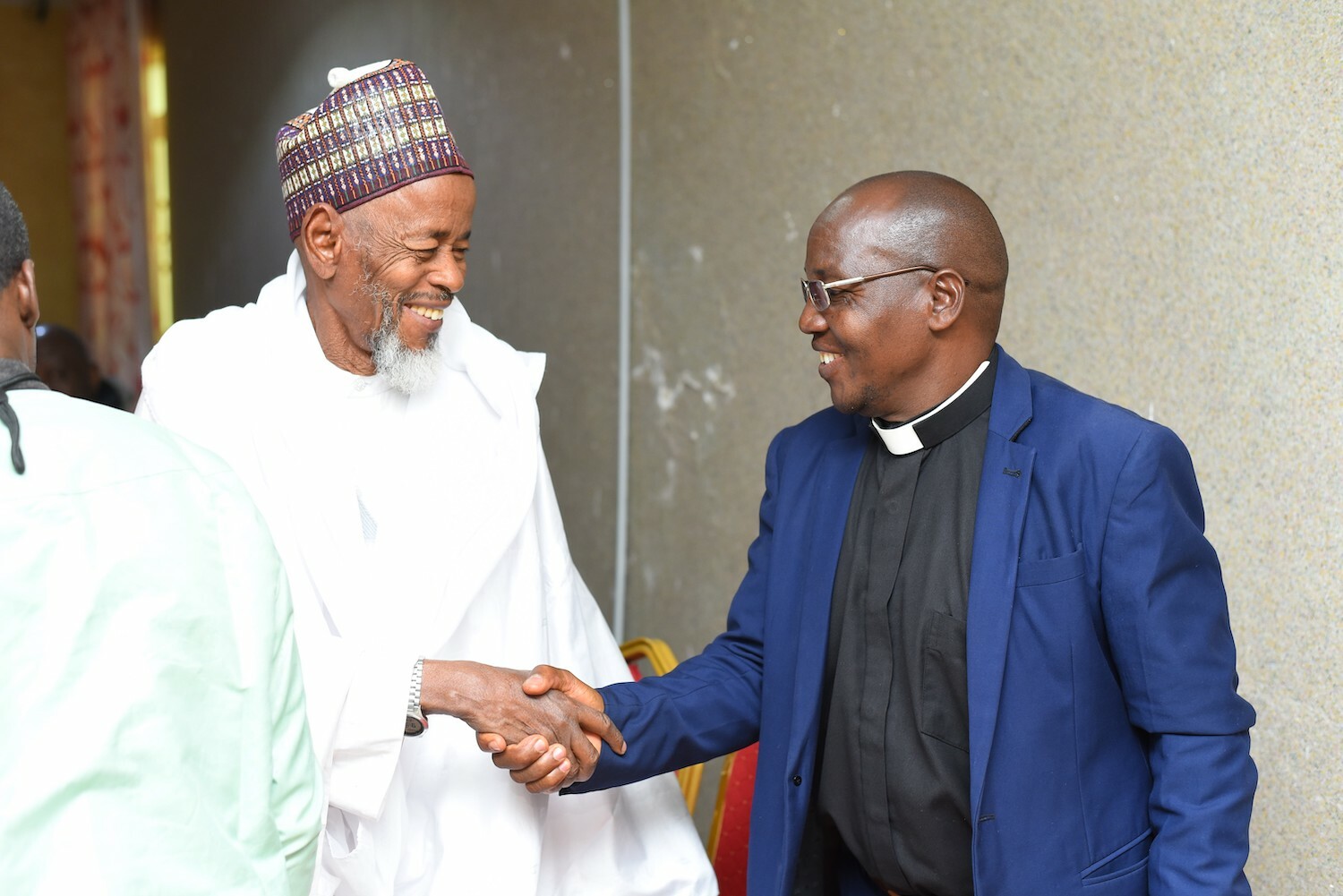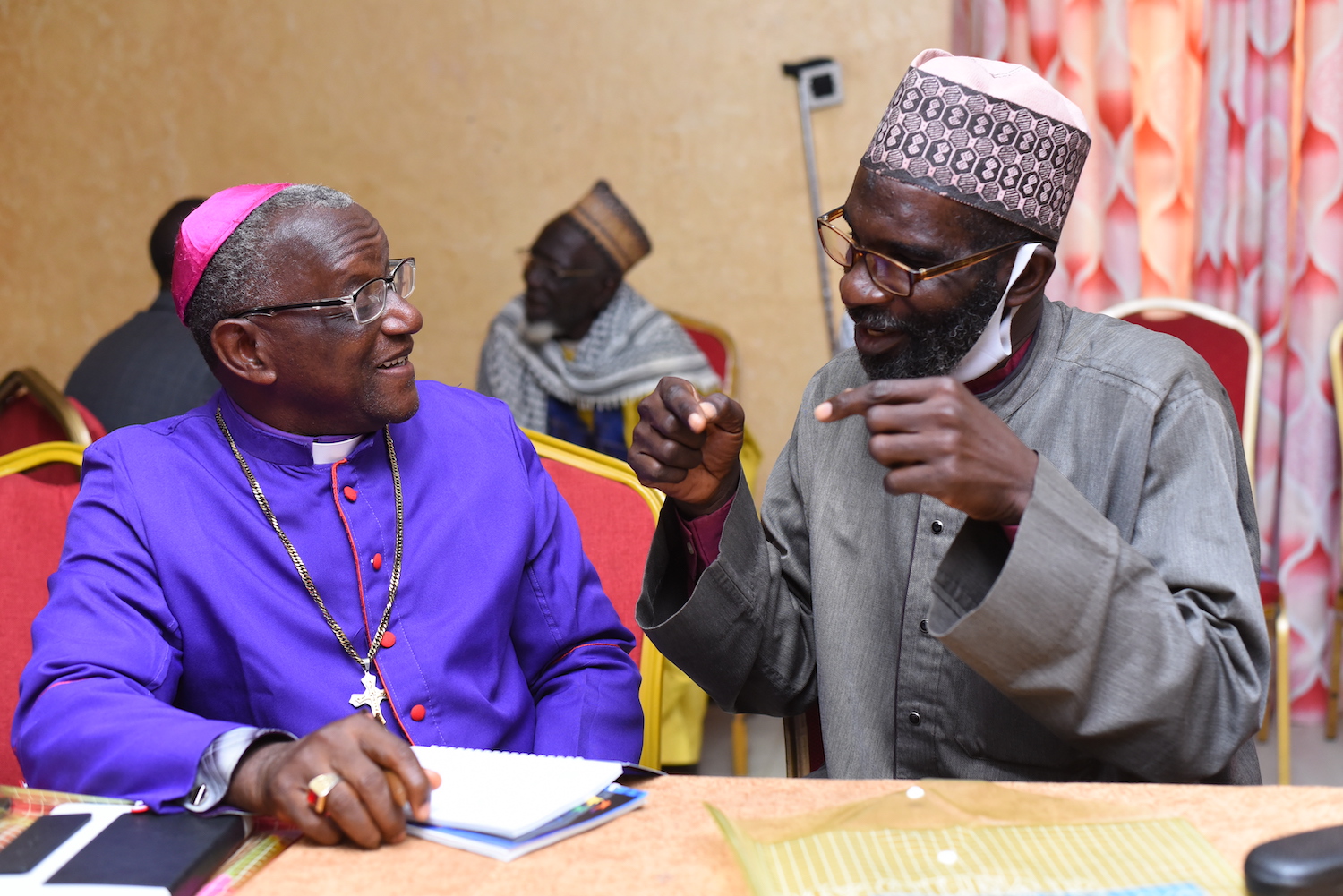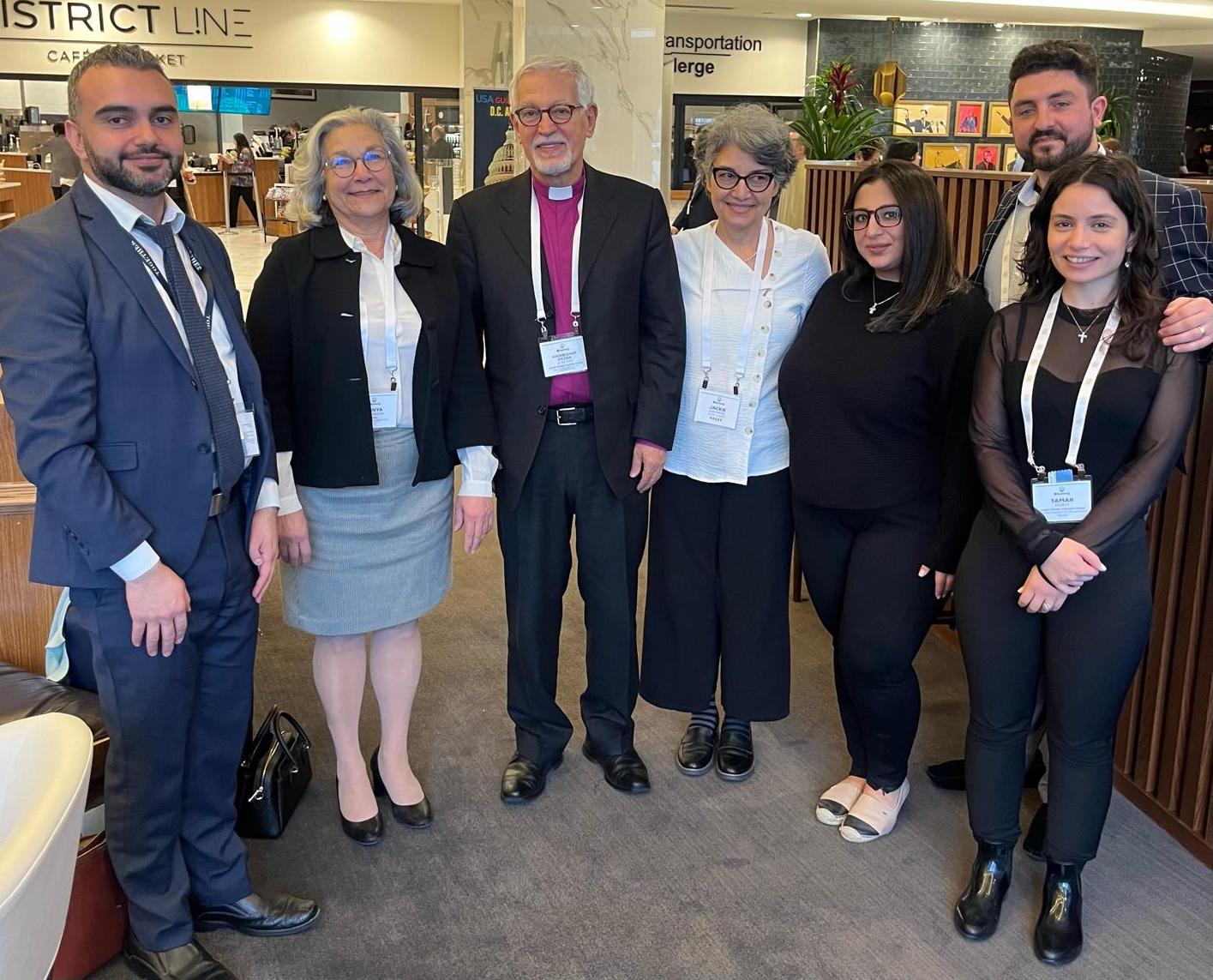
Rebecca Posey, Regional Director of Not for Sale, during a meeting at the GPC 2012 Atlanta.
ATLANTA, Dec. 1—“Human trafficking is a crime involving the exploitation of someone for the purpose of compelling labor work or commercial sex acts,” says Eskinder Negash, Director of the Office of Refugee Resettlement, at a forum at the 2012 Global Peace Convention in Atlanta.
“Victims of trafficking can be anyone from around the world or right next door here in Atlanta,” says Negash. Joining a panel of experts from different fields at the forum “Human Trafficking: Global Threat to Fundamental Human Rights,” Negash said that the Trafficking Victim Protection Act enlists several governmental agencies to enforce the three p’s of national anti-trafficking strategies: prevention, protection and prosecution.
Although great strides have been made to create these initiatives, he said, the real work must now be done to educate the public on how to identify cases of human trafficking.
Rebecca Posey, Regional Director of Not for Sale, called human trafficking “modern slavery,” with more people trapped in human trafficking than were enslaved at the height of the trans-Atlantic slave trade. The reality is that human trafficking is big business, she said.
More people are trapped in human trafficking than were enslaved at the height of the trans-Atlantic slave trade.
According to the UN Office of Drugs and Crime, human trafficking generates $32 billion per year, has surpassing the illegal arms trade as the second largest criminal enterprise in the world. Human trafficking is growing faster than the arms trade and drug trade and it is expected to surpass the drug trade as the number one criminal enterprise worldwide.
Posey says human trafficking is growing so quickly because there is a huge profit margin. “You can sell a bag of drugs once, but you can sell a person multiple times.” Jennifer Swain, Program Manager of Youth Smart (top) addresses the forum on Human Trafficking at the Global Peace Convention.
The root cause of slavery is lack of economic opportunity and that is compounded by social failures,” she says. “We hear a lot about what is pulling people into trafficking situations; it’s almost always, in international settings, a lack of economic opportunity.”
Jennifer Swain, Program Manager of Youth Smart, added that “human trafficking touches many components. There is a glorification of the ‘pimp/ho’ culture, and some people think that the buying and selling of our children for sex is fun.”
She said that “this is hidden in plain sight, because until you’re educated about what a victim looks like, you kinda just don’t notice it. This is a billion dollar industry, child/sex trafficking and human trafficking makes more money than McDonalds, Wal-Mart, and Google combined,” says Swain.
Susan Coppedge, Assistant U.S. Attorney, U.S. Department of Health and Human Services defines human trafficking in the United States as, “a person held in the service of another for labor or commercial sex, or held with the intention of being used for labor or sex. In the United States there is no requirement for the crossing of trans-national boundaries.”
Note: The Global Peace Foundation’s Safe Haven campaign, a project of GPF-USA and Coalition for American Renewal, is working to eradicate human trafficking through public awareness campaigns and engaging the nation’s faith communities in providing shelter and protection for victims of trafficking. To learn more about the Safe Haven campaign, visit Global Peace Foundation Safe Haven Campaign
Laura Riley is a graduate student at Emory University in Atlanta.



